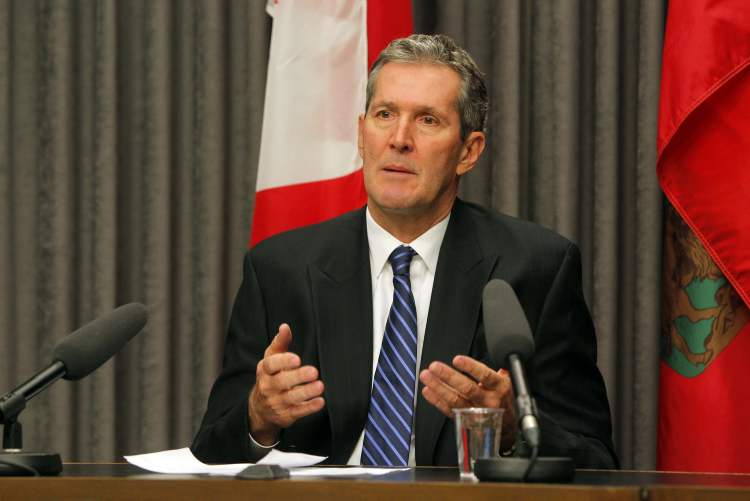Republished from the Brandon Sun print edition April 11, 2015

Having to line up sometimes days prior to secure a daycare spot is an absolute shame. To learn after all that time that the waiting was for naught is the injustice that stands as bitter icing on the cake.
As was shared in the Sun earlier this week, many parents were left without options after spending hours in line to try to secure spots in the YMCA’s before- and after-school programs through È cole Harrison School.
This experience may seem a bit extreme, but frankly, it is a reality all too many face in this province and across the country. We as Canadians are doing a disservice in the way we manage spaces available for quality child care.
Often through the crafting of this column on a weekly basis, I take opportunities to interject a viewpoint based on how a personal experience has affected us as residents of this city.
As the proud father of two young daughters, my wife and I have a strong connection to this issue.
Take, for example, our oldest daughter, who is school age now. But in planning for the future, we added her name to the child care lists available when she was six months old. At that time, it was ‘version 1.0,’ you might say, of the current system that is in place.
Subsequently, our youngest was placed on those same lists just after she was born, and both are currently still on the waiting list some five years later — the call never came. Thankfully, we found quality private care for both our children in a combination of three separate facilities. But in a household where both parents need to work to make ends meet, the stress of daycare spaces is a sad reality of the society in which we live.
So how could we do this differently?
If you look to other regions of the world, they seem to have child care taken care of — and in most of these areas, it is a national priority and not something merely offloaded onto provincial entities or municipal jurisdictions.
Take Sweden, for example. Fifty or so years ago, in an attempt to have more women in the labour force, the Swedes started down the path of developing a national plan for universal and affordable child care.
They accomplished this some 25 years ago with a national plan that included free pre-school education for toddlers (even if parents had a stay-at-home family member) and they imposed maximum caps on costs put in place by municipalities for children in the system.
Best of all, they guaranteed spots for children in care as mandated by law in the country.
There was a social benefit, too, as many believed that having children able to access educational opportunities earlier benefited their long-term well-being, and by proxy, the health of the country.
The Swedes are not the only ones who have made drastic changes to help alleviate the stress on parents juggling family life and time in the workforce.
Some areas offer extended hours to better suit parents’ work schedules. Some have gone to great lengths to utilize heavy recruitment strategies in an attempt to have more new people to join the child care field, thus reducing burnout on current staff.
And in one of the most interesting cases, Slovenia has gone to great lengths to bolster its population by offering a reducing scale based on the number of children you have in care. This also caused a bit of stress on the system, as the birth rate rose, but the country continued to offer the opportunity to residents, while growing a future generation of what is hoped will be tax-contributing members of society.
As for Canadians, without a dedicated initiative to continue to grow the labour force in early child care and education and offer up more spaces, local jurisdictions are doomed to be mired with platitudes and political promises and no real action.
If that is the case, the future looks even bleaker for those looking to find quality care for their children.
The current system is not working, and any monumental change will take time and political will. Politicians and everyday Canadians, much like the champions of universal health care decades earlier, need to be dedicated to that change now.
At this point, the best we can see it being is as an investment in the next generation. In absence of that fundamental shift or the aforementioned political will, our children will be far worse off than we ever were as they try to balance careers and family.




Social Profiles